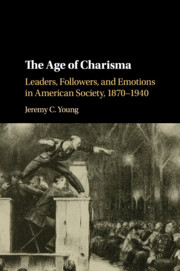Bibliography
Published online by Cambridge University Press: 20 January 2017
- Type
- Chapter
- Information
- The Age of CharismaLeaders, Followers, and Emotions in American Society, 1870–1940, pp. 282 - 313Publisher: Cambridge University PressPrint publication year: 2016



